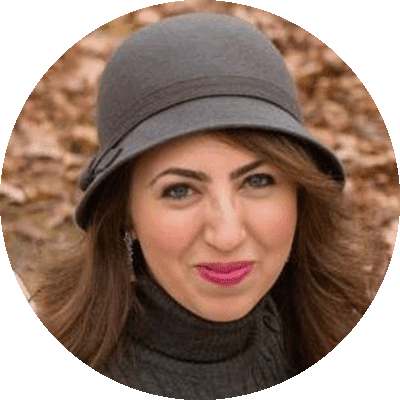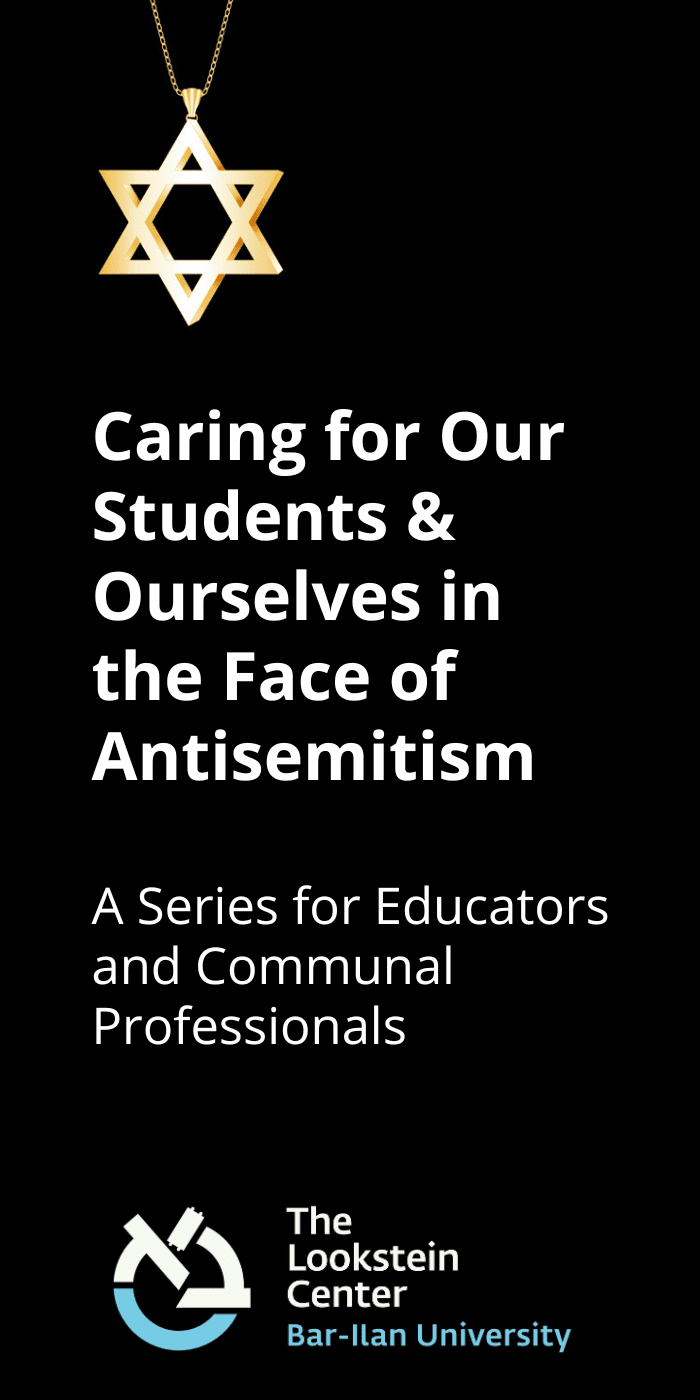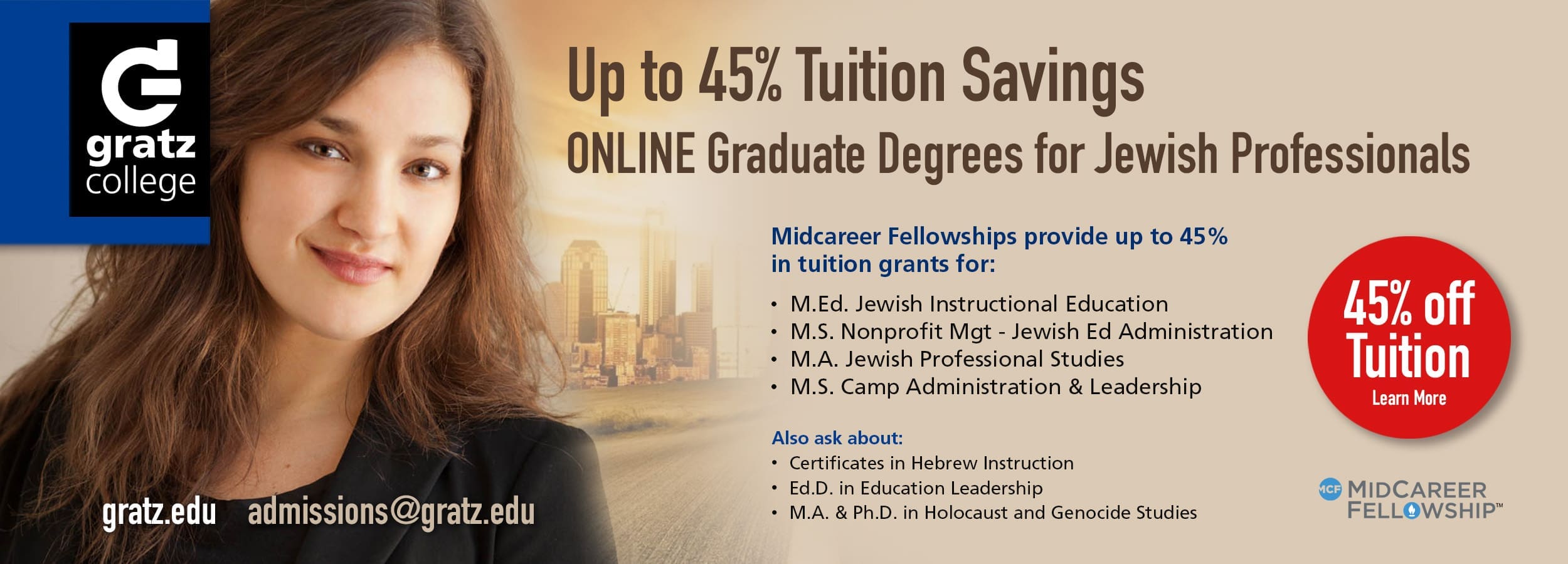Teacher Retention via Commitment to Growth

Olivia Friedman is an innovative educational thinker who teaches at Ida Crown Jewish Academy (Skokie) and is a member of the Advisory Board of Jewish Educational Leadership.
It’s an oft-cited lament—teachers are leaving because they are not being paid enough. While that is true, it is not the only truth. A star teacher who has now transitioned out of the classroom stated, “It’s a mistake to think that people are only price tags. There is often something people want that might not cost money.”
What is that? Opportunities for growth.
So, what is growth, and what is it not?
Let us first understand the people in the school building.
Who are the People in the Building?
In the corporate world, the search for talent cannot be overstated. Hiring the right people and ensuring they are in the right roles is a multi-million dollar business. When hired in the corporate sector, people are routinely asked to take the Predictive Index, the MBTI, or a StrengthFinders assessment.
As Tyler Cowen and Daniel Gross wrote in their book Talent, “Talent search is one of the most important activities in virtually all human lives.”
For the most part, Jewish day schools have not adopted these practices. Thus, when an individual is hired, their supervisor, whether Department Chair or Principal, has little idea of their areas of strength, weakness, and passion. Of course, these will become clear over time, but that is time wasted when a person would have been better suited to a different role within the school or could have been mentored more effectively if the school simply had a better understanding of how they work.
Thus, an obvious shift for Jewish day schools is to start asking teachers to take the Predictive Index. This test provides explicit feedback on how to best manage individual employees and how to give them work or place them in roles that play to their strengths. Additionally, schools can have teachers read The 5 Languages of Appreciation in the Workplace by Gary Chapman & Paul White, after which the teachers can candidly share exactly what makes them feel valued. Direct supervisors can make sure to actively appreciate teachers using the language that meshes with them.
This is a start, and there is more. All teachers, both new hires and those who are already in the school, should be interviewed about their interests and passions and what they love to do. If they volunteer, what kinds of volunteer opportunities are they most excited about? More often than not, there is a way to weave a teacher’s area of passion into the school. Sometimes there will be an explicit fit, such as a history buff taking on a role teaching history. Other times, more creativity is required. The fantasy fan can run a book club for students or an elective course offering could be driven by a teacher’s fascination with a particular subject.
What Does Growth Look Like?
Very often it is assumed that teacher growth means promotion over time into administrative roles. While that can be true, it is not necessarily the case. This goes back to knowing the people in the building. What do they want? What are their goals?
Certainly, there will be ambitious teachers who wish to grow their impact via the authority a formal role confers. They may be excited by the opportunity to lead in a way that is visible, receive the pay raise that comes with being a member of the administration, and have the ability to shape the school.
But this is not what every teacher wants. An Education Week article by Elizabeth Heubeck explains that many teachers observe the demands placed on administrators, their levels of stress, and lack of interaction with students, and find the job unappealing. The lack of interest in taking an administrative role, however, should not be confused with a lack of interest in leadership. According to Huebeck’s article:
A 2013 MetLife study found that over half of teachers are at least somewhat interested in combining their classroom duties with other roles in their school or district, and nearly a quarter of teachers are “very interested” in this option. In recent years, states have responded to teachers’ desire to balance their classroom duties with leadership opportunities. As of 2019, 35 states had developed formal teacher leadership policies, according to the National Council on Teacher Quality, thereby making it increasingly likely for individual districts to create “teacher leader” pathways.
Many teachers have expanded their role beyond the classroom to lead key student activities programs, and clubs, or represent the school within the broader education or Jewish day school community. They tend to lead via influence as opposed to the more formal authority-based role of an administrator.
And then there are those teachers who are interested neither in administration nor in leadership, yet nonetheless are interested in honing their craft through carefully curated professional development so that they become the best classroom practitioners that they can be. That, too, is important professional growth that can be encouraged, supported, and recognized by the school.
The Stay Interview
The best way to find out what kind of growth opportunities teachers want is to ask them. Performance reviews can be turned into opportunities to get to know teachers better and plan career trajectories together with them. Questions such as, “What are your goals?” “How can we help you achieve them?” and “Where do you see yourself in five years?” can be illuminating. Of course, these conversations require a culture of trust and openness in the school between teachers and their supervisors.
Elizabeth Heubeck describes what she calls the Stay Interview. The Stay Interview is a proactive process that allows administrators to focus on the teachers they do not want to lose. Dubbed “the irreplaceables,” these comprise about 20% of staff—top performers as well as “valuable teachers whose departure for other opportunities would have a drastic, negative impact campuswide.” Rather than waiting until teachers resign and then asking them why they did so, the Stay Interview focuses on actively ensuring that teachers remain. A principal or another administrator conducts an interview that lasts between 30-40 minutes and consists of “about five open-ended questions designed to spur dialogue.” These might include: What do you look forward to when you come to work each day? If you were to consider leaving this position, why would that be? What factors may trigger a departure?
Of course, follow-up is essential. Otherwise, if a teacher shares their concerns and nothing is done about them, they may become even more frustrated.
While this requires a time commitment, it is worth it. Human resources expert Emily Beck points out that, “it takes a lot more time to recruit and hire an excellent teacher than it does to retain one.”
What Does Growth Look Like in Practice?
Having the information is a great start. For example, once an administrator is aware that a particular teacher wants to be promoted to a formal administrative position, they can subsidize graduate school courses or implement mentoring opportunities that will assist that individual in growing into that role. If the teacher is excited about a teacher leadership role and is most passionate about running a mental health club on campus, perhaps the school can assist them in finding opportunities, or sending them on conferences, to improve their knowledge of mental health in teens. And if the teacher is focused on growing their classroom practice, the school can invest in personalized, curated professional development that helps them meet those goals.
Here is one sample of what a growth-oriented environment could look like. Recently, the Covenant Foundation awarded SAR Academy a significant grant to Machon Siach, “a research institute committed to developing teachers as public intellectuals and thought leaders on matters of Jewish education, curriculum, and culture that are central to the Modern Orthodox Community.” The grant enabled SAR to launch the Faculty Beit Midrash Innovation Lab, providing “opportunities for practical educational innovation by supporting faculty members in bringing their research to life in the classroom and school.” In practice, the Innovation Lab allows teachers to propose ideas they would like to try or create within the school and receive monetary remuneration as well as other support they might need for their project, like bringing in an expert as a speaker or buying books for their research. As part of this effort, Dr. Rivka Press Schwartz taught an ungraded AP Government class this past year (she tweeted about the experience and what she learned here).
The creation of Machon Siach and the Innovation Lab is a clear statement that SAR is willing to invest in the growth of its teachers. Through this framework, SAR encourages teachers to invest effort in novel pedagogical research and planning, treats teachers like content area and pedagogical experts, affords them the respect of taking their time and ideas seriously, and encourages an environment where teachers learn from each other’s expertise. This is a schoolwide initiative.
But investment in individual teachers could be equally effective. In a recent Orthodox Conundrum podcast on the topic, Rabbi Pesach Sommer of Ramaz writes:
One of the things that really, I’m not exaggerating when I say it changed my life, is that I was invited to give a Hashkafa class. I started teaching Hashkafa for 8th grade four years ago, a once-a-week class, where I get to really engage in my deepest passion in terms of my Jewish learning, in terms of bringing things to the classroom. And again, it’s three periods a week out of 20-something periods that I teach, but it just, it completely changes my experience as a teacher. Because I’m not just being told, ”okay, here’s where we need you, and you’re going to teach this,” but ”we know you love this, we think you have the ability to do this, we believe this would be valuable for our students, let’s fill that in.”
These examples combine teachers’ areas of passion with opportunities to bring that passion into the classroom. But there are other ways to show teachers that their schools care about and are invested in their growth.
Imagine the female teacher who is interested in becoming a Yoetzet Halacha (a halakhic advisor specializing in issues of family purity) and serving her local community. However, her Gemara skills are not up to par. The school could arrange for one of the Gemara teachers at the school to learn with her one-on-one during a free period so that she could grow those skills and achieve her dream.
Or, consider the male teacher who wants to grow his impact beyond the high school classroom. He is happy with his job, but he wants to stretch. Perhaps adult education would be the perfect opportunity. The school could advocate that local synagogues invite him to present and offer adult-education classes in the broader community. Alternatively, when a local Jewish middle school has a Yom Iyun, the school could promote him as a featured speaker.
And what about the teacher who ought to be sharing their work more broadly? The school can help them network with teachers in other schools, present at conferences, or get involved in one of the umbrella educational organizations. Making an introduction that expands someone’s network does not cost money, but it can mean the world to a teacher.
Teachers grow in environments that are willing to reward them for being known. When teachers are fully seen, administrators can find the best match when it comes to affording them new or additional roles, opportunities, or experiences. This won’t look the same for every teacher because teachers don’t all want the same things. But it will enable teachers to have a clear pathway to success—whether that means becoming an administrator, a teacher leader, or consistently refining and innovating their classroom practice.
Administrators can only match their teachers to the right growth opportunities if they know who their teachers are and what their teachers want. Begin there, and the possibilities are endless.



Olivia Friedman is an innovative educational thinker who teaches at Ida Crown Jewish Academy (Skokie) and is a member of the Advisory Board of Jewish Educational Leadership.
Reach 10,000 Jewish educational professionals. Advertise in the upcoming issue of Jewish Educational Leadership.





